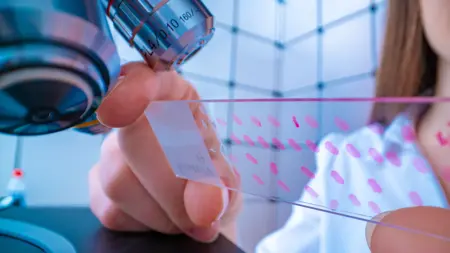MIMETAS Participates in €124.5 million Initiative to Transition to Animal-free Innovation

Utrecht, 15 March 2024 – The Dutch National Growth Fund will invest 124.5 million euros in a new centre for animal-free biomedical testing, known as the Centre for Animal-Free Biomedical Translation. Of this investment, 55 million euros are awarded directly and 69.5 million euros are granted subject to conditions. This center aims to generate safer, more effective treatments, while reducing animal suffering.
The Centre for Animal-Free Biomedical Translation (CPBT) will use this funding from the National Growth Funds (NGF) to accelerate the transition to animal-free biomedical innovations. This will offer economic and social benefits with improved medicines and less animal testing.
After an initial application by the CPBT in the third round of the National Growth Fund led to a reservation of 124.5 million euros, an adapted proposal was submitted in January 2024. This proposal has now been positively assessed and the funds awarded.
Safe and affordable medicines
The formation of the CPBT comes as great progress is being made in the development of non-animal testing methods and their accreditation and qualification. Academia, industry, regulators, patient organisations, government and NGOs are increasingly working together to obtain more accurate and cost-effective medicines.
Despite these positive moves towards more cross-sector collaboration, it’s becoming increasingly clear that the results obtained from animal experiments can be limited and ineffective. In most biomedical development pathways, it is only during in-human studies that it becomes apparent that the animal experiments conducted were unable to predict therapeutic effects in humans.
New centre for revolutionary change
Together with a large number of national and international partners, the CPBT will establish a centre for the development and dissemination of animal-free biomedical innovations and expertise. Initially, the centre will focus on ALS, cystic fibrosis, osteoarthritis/rheumatoid arthritis and asthma/COPD. The CPBT will implement the developed methods, tools and expertise together with researchers and companies. The new centre will also offer education, training, advice, and support to enhance the acceptance and use of animal-free biomedical innovations. Combined, the CPBT will run an integrated program that accelerates the transition to animal-free testing and strengthens the earning capacity of the Netherlands.
MIMETAS (Leiden, The Netherlands), the renowned leader in human tissue and disease modeling using organ-on-a-chip technologies, proudly announces its partnership in the CPBT consortium, focusing on ALS, rheumatism and arthrosis, automation, and standardisation and quantification of in vitro models. This collaboration marks a significant step towards advancing pharmaceutical, chemical, and food component development while minimizing reliance on animal testing.
By leveraging its innovative human disease models, MIMETAS aims to revolutionize the development and testing of compounds, fostering an effective and safer approach. The company's commitment to animal-free testing is paramount in achieving a deeper understanding of human physiology, surpassing the limitations of translational models.
Social and economic impact
Professor Wouter Dhert of the strategic theme Life Sciences of Utrecht University and the University Medical Center (UMC) Utrecht, one of the initiators of the CPBT, commented: “It is great news that the government has now decided to really invest in this important transition. We have been able to improve our initial plans thanks to the committee's advice. There is solid involvement from the pharmaceutical industry and health funds are also participating broadly. In addition, cooperation with regions outside Utrecht is strong. All academic medical centers in the Netherlands are included as partners. This clearly indicates how broad the support is for this initiative, linking economic added value to better translation of biomedical innovation to the patient, with less animal suffering.”
Co-initiator Professor Daniela Salvatori of the Faculty of Veterinary Medicine at Utrecht University added: “There is a lot of pressure worldwide to reduce the use of laboratory animals and accelerate innovation. With a strong Life Sciences & Health sector, the Netherlands can play a leading role. We are expecting that legislation in Europe and the United States will provide more room for new medicines to be admitted to the market without animal testing. Things are really moving forward! We are going to drive that change, also by preparing our students and professionals with good education and training.”
About the Centre for Animal-Free Biomedical Translation
The Centre for Animal-Free Biomedical Translation (CPBT) is an initiative of Utrecht University, University Medical Center Utrecht, HU University of Applied Sciences Utrecht, and the National Institute for Public Health and the Environment (RIVM). The initiative has a large number of public and private partners. The growth fund proposal was submitted by the Ministry of Agriculture, Nature, and Food Quality.
